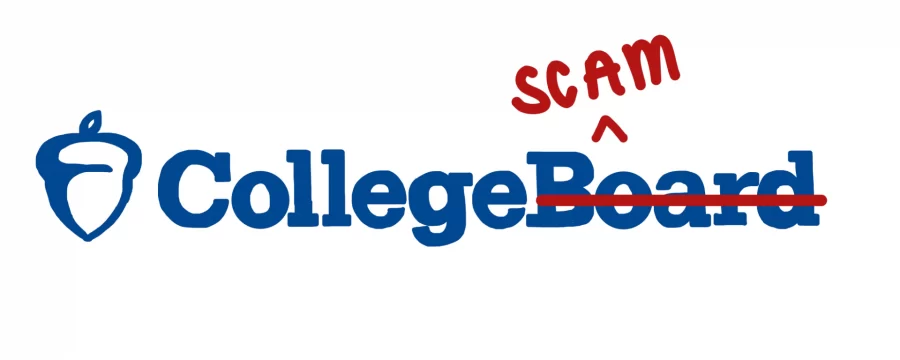I paid the $95 fee per test. I studied my rigorous Advanced Placement material for roughly two weeks. I attempted to review seven units of AP U.S. History, Physics 1, and English Language and Composition on my own. I subdued the stress sowed by the seeds of a worldwide pandemic only to replace it with the stress of online standardized testing. I followed every vague, loosely worded College Board directive.
My test failed to submit.
To the surprise of no one, my unfortunate fate proved the rule rather than the exception. Roughly 27,000 students (Hey! I’m a statistic!) felt the dread associated with the following message: “we did not receive your response” only after scrambling to prove our knowledge in a four-paragraph essay meant to capture the content and ideas presented in a year-long course. Yet my shared experience merely scratches the surface of the pitiful tale of The College Board, circa spring 2020.
Not even a week and a half into May’s two-week AP testing experience, The College Board was sued on behalf of students who ran into technical problems during testing—while I experienced a non-functioning submit button, others felt the panic of a crashed server, a not-uploadable iPhone image, or even faulty wifi. It did not take long for the The College Board’s blatant neglect to surface and foster hysteria in the world of Advanced Placement.
According to a recent Washington Post article, The College Board is under attack for having “engaged in a number of ‘illegal activities,’ including breach of contract, gross negligence, misrepresentation and violations of the Americans With Disabilities Act.” It is not surprising that the disheartening actions of The College Board have finally caught up with them.
For a “non-profit” with a yearly revenue of roughly $750 million, it is disappointing to witness the choices The College Board made with regards to AP testing—and amid a global pandemic! It’s striking their lack of consideration for the wellbeing of students across the world. Students who simply desire recognition and credit for nearly two semesters of rigorous work, students who have managed to find the time to sit at home in front of a screen and, despite their varied obstacles and distractions, put their ideas, skills and money to good use.
For too long students have simply represented a means to an end for the scam that is The College Board. The organization’s time is finally up. For years low income students have been robbed of the opportunity provided by expensive test prep books, classes and other advantageous resources for standardized testing—an issue long ignored by The College Board. No longer can they sweep the anger and frustration of their main income provider under the carpet because the issue at hand is one experienced by all students alike, regardless of socioeconomic class; they cannot shut their eyes to the pleads and accusations of tens of thousands of students.
For $94 per test they can do better, they have no choice but to do so; students like myself will continue to speak out against The College Board and lucky for us there happens to be another way to receive college credit and it goes by the name International Baccalaureate (I.B.).



































